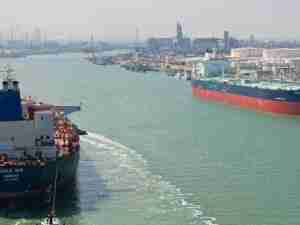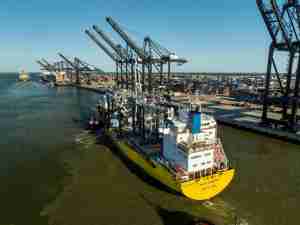Floods and cyclones in Queensland have severely disrupted port operations in Australia's largest coal-producing state since December, boosting seaborne congestion and delaying shipments for weeks.
"With a cyclone approaching Australia and an already over-supply of tonnage in the Pacific, several Panamaxes were ballasting towards the U.S. Gulf," said broker firm Fearnleys before the cyclone struck overnight.
"Approximately, 60 vessels were reported sailing inbound this week."
Hay Point and Mackay ports have re-opened after Cyclone Yasi passed without causing any major damage, while Port Abbot Point remained shut due to a power outage, the port authority said.
Operations at the coal terminal have slowed for the past two months, with output falling to 3.98 million tonnes in December from 5.28 million the previous month, according to North Queensland Bulk Ports Corp.
The drop in output at Australia's ports has cut coal and iron ore cargoes by 6 percent, said Doug Garber, analyst at FBR Capital Markets.
That translates into lost business for 123 70,000-ton panamax ships, or 62 150,000-ton capesize vessels.
Tumbling Freight Rates
The empty vessels in Australia have exacerbated the oversupply problem in the global freight market, pushing rates to two-year lows.
"Reports indicate that chartering activity last week was at its lowest level since September," said Michael Webber, analyst at Wells Fargo Securities.
"Brokers are reporting that some owners are refusing charters at current rates."
The Baltic Exchange's main sea freight index , which tracks rates to ship dry commodities, tumbled to a fresh two-year low on Wednesday at 1,064 points.
Freight rates for supramax vessels travelling from Australia to Japan and South Korea, two major coal importers, dropped to a 23-month low of $7,310 a day from $7,945 last week.
Australia, the world's largest coal exporter, accounts for about two-thirds of global coking coal trade, with around 90 percent of that coming from Queensland state. Coking or metallurgical coal is used for steelmaking.
Iron ore and coal are the two biggest commodities for the dry bulk freight market by volume. (Reuters)










